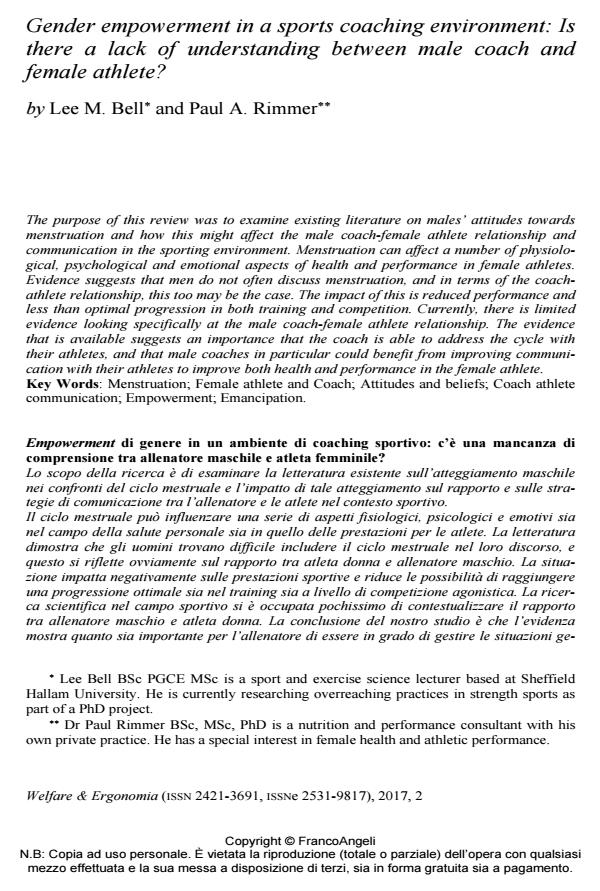Gender empowerment in a sports coaching environment: Is there a lack of understanding between male coach and female athlete?
Journal title WELFARE E ERGONOMIA
Author/s Lee M. Bell, Paul A. Rimmer
Publishing Year 2019 Issue 2017/2
Language English Pages 6 P. 187-192 File size 267 KB
DOI 10.3280/WE2017-002010
DOI is like a bar code for intellectual property: to have more infomation
click here
Below, you can see the article first page
If you want to buy this article in PDF format, you can do it, following the instructions to buy download credits

FrancoAngeli is member of Publishers International Linking Association, Inc (PILA), a not-for-profit association which run the CrossRef service enabling links to and from online scholarly content.
The purpose of this review was to examine existing literature on males’ attitudes towards menstruation and how this might affect the male coach-female athlete relationship and communication in the sporting environment. Menstruation can affect a number of physiolo-gical, psychological and emotional aspects of health and performance in female athletes. Evidence suggests that men do not often discuss menstruation, and in terms of the coach-athlete relationship, this too may be the case. The impact of this is reduced performance and less than optimal progression in both training and competition. Currently, there is limited evidence looking specifically at the male coach-female athlete relationship. The evidence that is available suggests an importance that the coach is able to address the cycle with their athletes, and that male coaches in particular could benefit from improving communication with their athletes to improve both health and performance in the female athlete.
Keywords: Menstruation; Female athlete and Coach; Attitudes and beliefs; Coach athlete communication; Empowerment; Emancipation.
Lee M. Bell, Paul A. Rimmer, Gender empowerment in a sports coaching environment: Is there a lack of understanding between male coach and female athlete? in "WELFARE E ERGONOMIA" 2/2017, pp 187-192, DOI: 10.3280/WE2017-002010